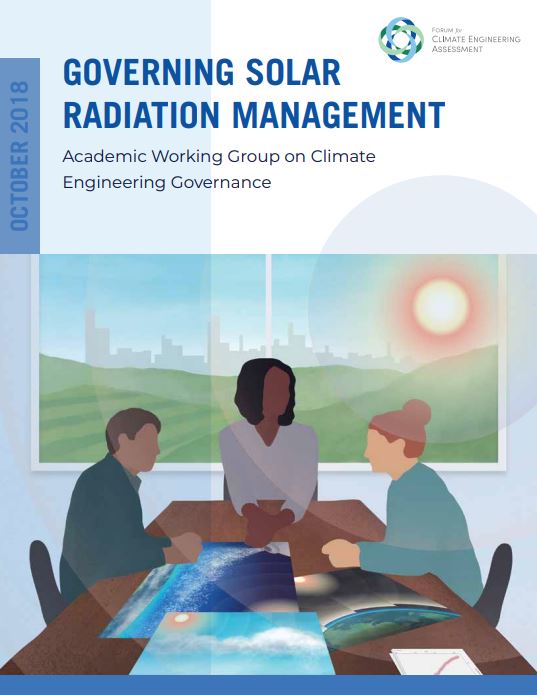A welcome expansion of the solar geoengineering debate

One of our main goals at C2G2 is to bring new voices into the conversation about governing large-scale Carbon Removal and Solar Geoengineering.
To that end, I was delighted to see the launch of a report on Governing Solar Radiation Management by our friends at the Forum for Climate Engineering Assessment.
It was written by a distinguished and diverse group of fourteen global governance experts, who spent two years studying and deliberating on this controversial topic. Highlights include twelve near-term recommendations for governing Solar Geoengineering technologies and – as an immediate priority – their research.
While some specific recommendations remain open to debate, I could not agree more with the report’s over-arching message: that it’s time to create robust international governance around this issue, before increased research, experimentation and any potential testing or deployment takes place.

We in C2G2 often find the biggest challenge in catalyzing a meaningful conversation on this issue is to find people willing to have that conversation in the first place.
Outside a relatively small circle of scientists, academics and policy makers, any discussion of the governance of Solar Geoengineering has been viewed with great reluctance, if not suspicion. In that regard, a report offering practical, near-term recommendations for policy-makers is a significant achievement.
We also heartily welcome its ideas for strengthening multilateral governance by leveraging existing institutions. For example, the report states:
SRM is relevant to the work of many international organizations, including organizations working on human development, oceans, education, food systems, and many other issues. Coordinating across these institutions has many benefits. First, it makes governance discussions more broadly inclusive of the needs and portfolios of institutional stakeholders. Second, coordinating across institutions helps to avoid duplication of effort and encourages efficient use of resources and maximization of synergies.
We at C2G2 have based our approach on the belief that no one forum can create global governance for Solar Geoengineering alone, so we find this approach quite helpful.
Perhaps most importantly for me, this report offers a great starting point for generating debate, which is central to our catalytic mission. I can now say, ‘Look – some of the world’s leading governance experts agree this is a priority: and have specific ideas on what may be needed in the next few years. What do you think?’
For that, I am grateful.